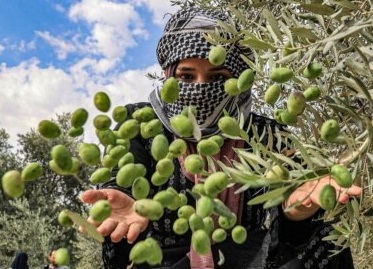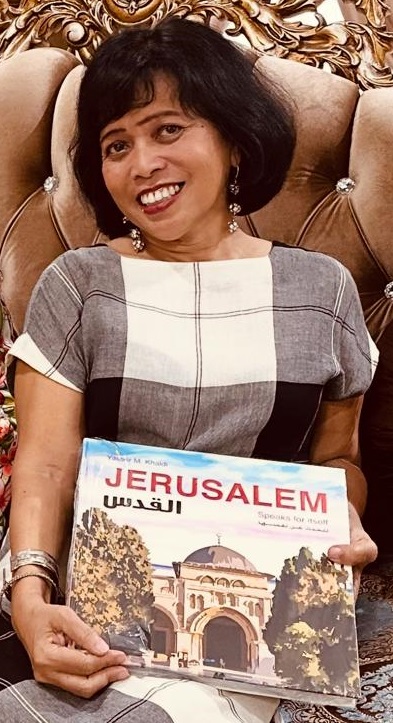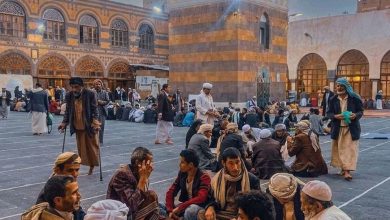
Yesterday was a happy day for me, to meet again my bestie, Madame Fatena Alshun, the spouse of Ambassador of Palestine to Indonesia after a series of events of life.

Madame Fatena was wearing a bright flowerish Abaya typical Moroccan dress, beautiful. We talked lots of thing and of course about Gaza. I told her that I would love to bring her to a freh cool area in West Java and to meet the Crown Prince and Princess and I will bring three Ambassadors + Spouses.

To complete this story, I am glad to share what the city called Khan Yunis that produces millions of Olive Oil before the war, and now only beautiful story left behind.
Khan Yunis, also known as Khan Younis or Khan Yunus, or “Caravan of Yunus,” is a city located in the southern Gaza Strip and the capital of the Khan Yunis Governorate. According to the Palestinian Central Bureau of Statistics, Khan Yunis had a population of 205,125 in 2017. Located just 4 kilometers east of the Mediterranean Sea, Khan Yunis has a semi-arid climate with maximum temperatures of 30 degrees Celsius in summer and 10 degrees Celsius in winter, with an annual rainfall of approximately 260 mm. Khan Yunis is a paradise for olives in Palestine.
 As stated in Surah Al-Mu’minun (23), verse 20, Allah SWT describes the benefits of olives as a fruit that can be consumed and can increase appetite. The Canaanites likely gave the name Gaza, which means “strength” in ancient Semitic.
As stated in Surah Al-Mu’minun (23), verse 20, Allah SWT describes the benefits of olives as a fruit that can be consumed and can increase appetite. The Canaanites likely gave the name Gaza, which means “strength” in ancient Semitic.My memory flashes back to the neighboring country of Palestine, The Kingdom of Hashemite of Jordan. From the border of Jericco in Palestine, we can pass the Jordan Valley and Voila..we arrive in Bethany, the city where Yesus was baptized by John the Baptize.
Strolling the city of Amman, I was quite surprised when I was invited to have lunch by a committee from the Kingdom of Jordan at the Levant Restaurant. Oh, why eat at a French restaurant? I want to try authentic Jordanian cuisine? It turns out that the word “Levant” in the kingdom of King Abdullah II and Queen Rania is derived from the French “lever,” meaning “to rise” or “to rise.” This refers to the sun rising in the east, which is also the geographical direction of the region.

The term first appeared in English in the 15th century and was originally used to refer to the Mediterranean region east of Italy.
The Levant broadly encompasses what is now Syria, Lebanon, Israel, Palestine, and Jordan. Sometimes, parts of Iraq and Cyprus are also considered part of the Levant.
The Levant has been a historically significant region, serving as the site of ancient civilizations, a crossroads of culture and trade, and an arena of conflict. The term “Levant” is not simply a geographical name; it carries rich historical and cultural significance, related to its geographical location and its important role in history and civilization.
Jakarta, 11 July 2025




